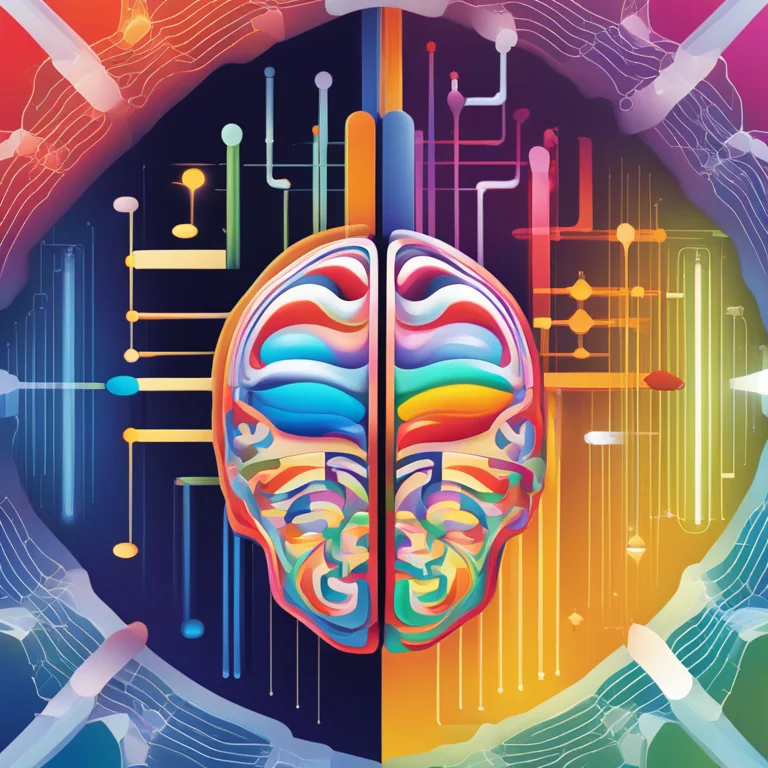
The Impact of Meditation on Brain Function
Discover how regular meditation practice can invoke significant changes in brain functionality, potentially enhancing emotional well-being and cognitive performance.
article by Hina Kurosawa
Meditation's Effect on Brain Structure
Meditation is more than a practice for spiritual exploration; it's a tool for brain enhancement. Studies have shown that consistent meditation can lead to increases in grey matter density, particularly in regions associated with learning, memory, self-awareness, and emotional regulation. Neuroimaging techniques like MRI have confirmed that long-term practitioners often display pronounced structural changes in the prefrontal cortex, which is crucial for complex cognitive behavior and decision-making. These adjustments suggest that meditation might not only improve mental functions in the short term but also contribute to a more resilient and efficiently operating brain over time.

Neural Connectivity and Network Efficiency
Aside from structural remodeling, meditation also affects the way different brain areas communicate. Enhanced connectivity between regions, such as the default mode network—responsible for self-referential thoughts and mind-wandering—and the dorsolateral prefrontal cortex, is observed. This implies a more coordinated and focused thought process. Furthermore, meditation reduces the brain's tendency to engage in the default mode network, thereby diminishing distraction and supporting a present-centered awareness. Enhanced connectivity isn't just important for attention but also underpins more harmonious emotional interactions and responsiveness.

Neurochemical Benefits of Meditation
The brain's chemistry also undergoes transformation with regular meditation. Dopamine, known widely as the 'feel-good' neurotransmitter, is released during meditation, which can lead to increased feelings of happiness and reduced stress. Moreover, meditation has been associated with lower levels of cortisol, the stress hormone, which suggests that the practice could have tangible benefits for stress management and overall health. The balance of crucial neurotransmitters is thus positively influenced, offering a protective effect against mental health disorders and cognitive decline.

Impact on Cognitive Agility and Aging
The cognitive agility provided by meditation may stem from its ability to preserve the brain's processing speed and volume, possibly slowing down aspects of the brain's aging process. Age-related cognitive decline can be mitigated, as meditation bolsters the brain's ability to form new connections and grow new cells, despite one's age. Hence, embracing meditation could be seen as an investment in one’s cognitive longevity, potentially leading to a more vibrant, aware, and productive later life.
Meditation and Emotional Regulation
The amygdala, the brain's emotional center, is responsible for processing feelings like fear, anxiety, and stress. Meditation practice has been linked to decreased amygdala activity, leading to enhanced emotional stability and lowering the likelihood of being hijacked by negative emotions. As a result, individuals who meditate regularly often report greater equanimity and a heightened ability to navigate life's emotional challenges with grace and resilience.
Innovation in Meditation Research
As we progress in 2024 and beyond, emerging research is beginning to elucidate the intricate ways in which meditation shapes the brain. With advances in technology such as real-time brain imaging and wearable EEG devices, we're gaining deeper insights into the meditative brain. These innovations open the door to personalized meditation practices, optimized for individual brain patterns, advancing our understanding of this ancient practice in the context of modern neuroscience.
Published: 1/9/2024
Modified: 1/9/2024
More predictions
Come back here soon to learn more about yourself and your future


Mindful Rest: Integrating Meditation & Sleep for Well-being
Discover the synergy of meditation and sleep in enhancing mental, emotional, and physical health. This article delves into practices that combine these powerful restoration tools.


The Tranquil Bridge: Meditation's Impact on Sleep Quality
Discover how meditation can enhance sleep quality, weaving a path to better rest and well-being


The Serene Path: A Guide to Meditation Retreats
Discover the transformative journey of meditation retreats and how they can enhance your spiritual practice in a serene environment.